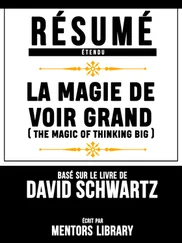Sarah Grand - The Beth Book
Здесь есть возможность читать онлайн «Sarah Grand - The Beth Book» — ознакомительный отрывок электронной книги совершенно бесплатно, а после прочтения отрывка купить полную версию. В некоторых случаях можно слушать аудио, скачать через торрент в формате fb2 и присутствует краткое содержание. Жанр: literature_19, foreign_antique, foreign_prose, Биографии и Мемуары, на английском языке. Описание произведения, (предисловие) а так же отзывы посетителей доступны на портале библиотеки ЛибКат.
- Название:The Beth Book
- Автор:
- Жанр:
- Год:неизвестен
- ISBN:нет данных
- Рейтинг книги:4 / 5. Голосов: 1
-
Избранное:Добавить в избранное
- Отзывы:
-
Ваша оценка:
- 80
- 1
- 2
- 3
- 4
- 5
The Beth Book: краткое содержание, описание и аннотация
Предлагаем к чтению аннотацию, описание, краткое содержание или предисловие (зависит от того, что написал сам автор книги «The Beth Book»). Если вы не нашли необходимую информацию о книге — напишите в комментариях, мы постараемся отыскать её.
The Beth Book — читать онлайн ознакомительный отрывок
Ниже представлен текст книги, разбитый по страницам. Система сохранения места последней прочитанной страницы, позволяет с удобством читать онлайн бесплатно книгу «The Beth Book», без необходимости каждый раз заново искать на чём Вы остановились. Поставьте закладку, и сможете в любой момент перейти на страницу, на которой закончили чтение.
Интервал:
Закладка:
"What other 'things like that' do you know, Beth?"
"The song of the sea in the shell,
The swish of the grass in the breeze,
The sound of a far-away bell,
The whispering leaves on the trees,"
Beth burst out instantly.
"Who taught you that, Beth?" her father asked.
"Oh, no one taught me, papa," she answered. "It just came to me – like this, you know. I used to listen to the sea in that shell in the sitting-room, and I tried and tried to find a name for the sound, and all at once song came into my head — The song of the sea in the shell . Then I was lying out here on the grass when it was long, before you cut it to make hay, and you came out and said, 'There's a stiff breeze blowing.' And it blew hard and then stopped, and then it came again; and every time it came the grass went – swish-h-h! The swish of the grass in the breeze. Then you know that bell that rings a long way off, you can only just hear it out here — The sound of a far-away bell . Then the leaves – it was a long time before anything came that I could sing about them. I used to try and think it, but you can't sing a thing you think. It's when a thing comes, you can sing it. I was always listening to the leaves, and I always felt they were doing something; then all at once it came one day. Of course they were whispering — The whispering leaves on the trees . That was how they came, papa. At first I used to sing them by themselves; but now I sing them all together. You can sing them three different ways – the way I did first, you know, then you can put breeze first —
The swish of the grass in the breeze,
The whispering leaves on the trees,
The song of the sea in the shell,
The sound of a far-away bell.
Or you can sing —
The sound of a far-away bell,
The whispering leaves on the trees,
The swish of the grass in the breeze,
The song of the sea in the shell.
Which way do you think the nicest?" She had rattled all this off as fast as she could speak, looking and pointing towards the various things she mentioned as she proceeded, the sea, the grass, the trees, the distance; now she looked up to her father for an answer. He was looking at her so queerly, she was filled with alarm. "Am I naughty, papa?" she exclaimed.
"Oh no," he said, with a smile that reassured her. "I was just thinking. I like to hear how 'things come' to you. You must always tell me – when new things come. By the way, who told you that fuchsia was salmon-coloured?"
"I saw it was," she said, surprised that he needed to ask such a question. "I saw it one day when we had boiled salmon for dinner. Isn't it nice when you see that one thing's like another? I have a pebble, and it's just the shape of a pear – now you know what shape it is, don't you?" He nodded. "But if I said it's thick at one end and thin at another, you wouldn't know what shape it is a bit, would you?"
"No, I should not," he answered, beginning to prune again, thoughtfully. "Beth," he said presently, "I should like to see you grow up."
"Shan't I grow up?" said Beth in dismay.
"Oh yes – at least I should hope so. But – it's not likely that I shall be – looking on. But, Beth, I want you to remember this. When you grow up, I think you will want to do something that only a few other people can do well – paint a picture, write a book, act in a theatre, make music – it doesn't matter what; if it comes to you, if you feel you can do it, just do it. You'll not do it well all at once; but try and try until you can do it well. And don't ask anybody if they think you can do it; they'll be sure to say no; and then you'll be disheartened – What's disheartened? It's the miserable feeling you would get if I said you would never be able to learn to play the piano. You'd try to do it all the same, perhaps, but you'd do it doubtfully instead of with confidence."
"What's confidence?" said Beth.
"You are listening to me now with confidence. It is as if you said, I believe you."
"But I can't say 'I believe you' to arithmetic, if I want to do it."
"No, but you can say, I believe I can do it – I believe in myself."
"Is that confidence in myself?" Beth asked, light breaking in upon her.
"That's it. You're getting quite a vocabulary, Beth. A vocabulary is all the words you know," he added hastily, anticipating the inevitable question.
Beth went on with her weeding for a little.
"And there is another thing, Beth, I want to tell you," her father recommenced. "Never do anything unless you are quite sure it is the right thing to do. It doesn't matter how much you may want to do it, you mustn't, if you are not quite, quite sure it is right."
"Not even if I am just half sure?"
"No, certainly not. You must be quite, quite sure."
Beth picked some more weeds, then looked up at him again: "But, papa, I shall never want to do anything I don't think right when I'm grown up, shall I?"
"I'm afraid you will. Everybody does."
"Did you want to, papa?" Beth asked in amazement.
"Yes," he answered.
"And did you do it?"
"Yes," he repeated.
"And what happened?"
"Much misery."
"Were you miserable?"
"Yes, very. But that wasn't the worst of it."
"What was the worst of it?"
"The worst of it was that I made other people miserable."
"Ah, that's bad," said Beth, with perfect comprehension. "That makes you feel so horrid inside yourself."
"Well, Beth, just you remember that. You can't do wrong without making somebody else miserable. Be loyal, be loyal to yourself, loyal to the best that is in you; that means, be as good as your friends think you, and better if you can. Tell the truth, live openly, and stick to your friends; that's the whole of the best code of morality in the world. Now we must go in."
As they walked down the garden together, Beth slipped her dirty little hand into his, and looked up at him: "Papa," she said solemnly, "when you want to be with somebody always, more than with anybody else; and want to look at him, and want to talk to him, and you find you can tell him lots of things you couldn't tell anybody else if you tried, you know; what does it mean?"
"It means you love him very much."
"Then I love you, papa, very much," she said, nestling her head against his arm. "And it does make me feel so nice inside. But it makes me miserable too," she added, sighing.
"How so?"
"When you have a headache, you know. I used only to be afraid you'd be angry if I made a noise. But now I'm always thinking how much it hurts you. I wake up often and often at night, and you are in my mind, and I try and see you say, 'It's better,' or 'It's quite well.'"
"And what then, Beth?" her father asked, in a queer voice.
"Then I don't cry any more, you know."
She looked up at her father as she spoke, and saw that his eyes were full of tears.
CHAPTER X
That was almost the last of those happy autumn days. Winter fell upon the country suddenly with nipping cold. The mountains, always sombre, lowered in great tumbled masses from under the heavy clouds that seldom rose from their summits. Terrible gales kept the sea in torment, and the voice of its rage and pain filled Castletownrock without ceasing. Torrents of rain tore up the roads, and rendered them almost impassable. There was stolid endurance and suffering written on every face out of doors, while within the people cowered over their peat fires, a prey to hunger, cold, and depression. Draughts made merry through the large rooms and passages in Captain Caldwell's house; the wind howled in the chimneys, rattled at the windows, and whistled at the keyholes, especially at night, when Beth would hide her head under the bed-clothes to keep out the racket, or, in another mood, lie and listen to it, and imagine herself out in the storm, till her nerves were strung to a state of ecstatic tension, and her mind fairly revelled in the sense of danger. When her father was at home in the evening, she would sit still beside the fire in the sitting-room, listening in breathless awe, and excitement wholly pleasurable, to the gale raging without; but if Captain Caldwell had not returned, as frequently happened now that the days were short, and the roads so bad, well knowing the risks he ran, she would see the car upset a hundred times, and hear the rattle of musketry in every blast that shook the house, and so share silently, but to the full, the terrible anxiety which kept her mother pacing up and down, up and down, unable to settle to anything until he entered and sank into a seat, often so exhausted that it was hard to rouse him to change his dripping clothes. His duties, always honourably performed whatever the risk to himself, were far too severe for him, and he was rapidly becoming a wreck; – nervous, liverish, a martyr to headache, and a slave to stimulants, although not a drunkard – he only took enough to whip him up to his work. His digestion too had become seriously impaired, and he had no natural appetite for anything. He was fond of his children, and proud of them, but had hitherto been too irritable to contribute anything to their happiness; on the contrary, his name was a terror to them, and "Hush, papa has come in!" was enough at any time to damp their wildest spirits. Now, however, he suffered more from depression than from irritability, and would cower over the fire on stormy days in a state of despondency which was reflected in every face, taking no notice of any of them. The children would watch him furtively in close silent sympathy, sitting still and whispering for fear of disturbing him; and if perchance they saw him smile, and a look of relief came into their mother's anxious face, their own spirits went up on the instant. But everything was against him. The damp came up from the flags in the sitting-room through the cocoanut matting and the thick carpet that covered it, which it defaced in great patches. Close to the fire the wires of the piano rusted, and had to be rubbed and rubbed every day, or half the notes went dumb. The paper, a rare luxury in those parts, began to drop from the walls. Great turf-fires were constantly kept up, but the damp stole a march on them when they smouldered in the night, and made mildew-marks upon everything.
Читать дальшеИнтервал:
Закладка:
Похожие книги на «The Beth Book»
Представляем Вашему вниманию похожие книги на «The Beth Book» списком для выбора. Мы отобрали схожую по названию и смыслу литературу в надежде предоставить читателям больше вариантов отыскать новые, интересные, ещё непрочитанные произведения.
Обсуждение, отзывы о книге «The Beth Book» и просто собственные мнения читателей. Оставьте ваши комментарии, напишите, что Вы думаете о произведении, его смысле или главных героях. Укажите что конкретно понравилось, а что нет, и почему Вы так считаете.












